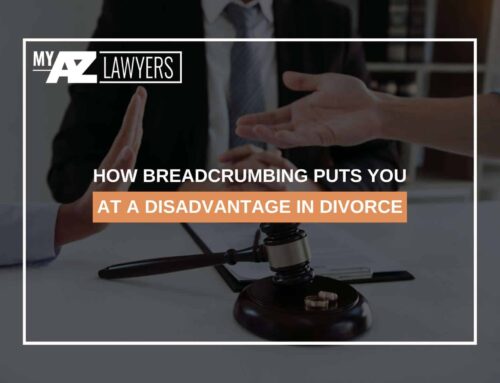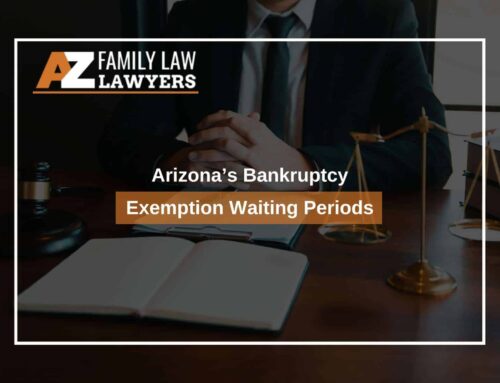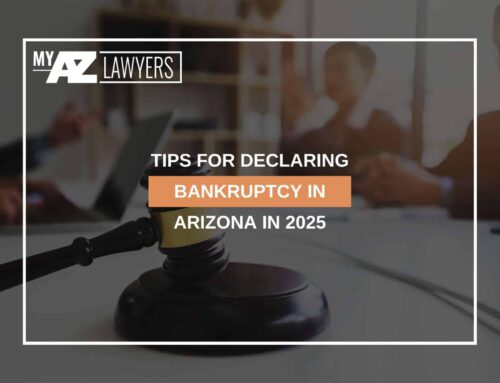Table Of Contents
Bankruptcy Timing & The Holidays
With Thanksgiving 2024 already come and gone, the winter holidays are just around the corner. These are times of joy with family, food, and celebration, but making the holiday season special can be difficult if you’re on a tight budget or struggle with debt. Bankruptcy provides protection from creditors in an instant and eventually allows the debtor to clear or pay off their debts while under court supervision. This could be just what you and your family need to stabilize your finances, especially during a hectic time like the holidays. On the flip side, preparing for and celebrating the holidays could draw your focus away from key aspects in your case or trigger certain limitations that would make it better to wait to file your case, if possible. If you are unsure after reading this article, you can have your debt evaluated by one of our experienced Phoenix and Tucson bankruptcy lawyers. Schedule your free consultation today by calling 480-470-1504.

Holiday Case Delays
Some debtors have the goal of discharging their cases as expediently as possible. If this is a bankruptcy debtor’s primary objective, the holidays might not be the right time to file. The court sometimes has shortened hours around the holidays, and is closed on Christmas Day and New Year’s Day. You might find that a case filed around the holidays takes slightly longer to complete. However, the difference might not be drastic, and activating protection from the automatic stay might be more important to you than achieving a rapid discharge. And just like the courts, your attorney could be backlogged by holiday filings. They could have travel and time with family in their schedule during the holidays, just like you. Last-minute filings might be more difficult to pull off during the holiday season, but they are manageable with careful planning. To schedule your free consultation with a member of our Arizona bankruptcy team, call 480-470-1504.
Credit Card Spending Limits Before Bankruptcy
If you’re considering bankruptcy, you might be tempted to max out your credit cards on extravagant gifts for your loved ones, since they will be discharged soon anyway. But bankruptcy is not meant to discharge debts that you never had any intention to repay. The bankruptcy trustee will be on the lookout for these types of abuses of the bankruptcy system, namely by reviewing your credit card statements prior to filing for bankruptcy. You will need to watch your credit card spending for 90 days or more prior to filing your petition. You shouldn’t exceed $850 in luxury purchases on your credit cards during that time. You also need to avoid cash advances of $1,100 or more 75 days before filing your bankruptcy petition. These expenditures also create the risk that you are keeping non-exempt funds on your person in an attempt to conceal them from the bankruptcy trustee.
During the holidays, you probably buy more gifts and spend more on festive meals than you do throughout the rest of the year. This can make it tricky to differentiate what is reasonable spending, and what is considered luxury spending. Before filing for bankruptcy, your purchases should be limited to those that are reasonably necessary for your maintenance and support. Picking up a meal from Subway or some clothes from your kids from Target should pass the trustee’s review without much pushback. But if the trustee reviews your credit card statements and sees you’ve been eating out at restaurants every night and shopping at Nordstrom, this could trigger further review. Most travel expenses, like flights, taxis, etc., are considered luxury purchases unless incurred for matters like business or a family funeral. Don’t go to pricier grocery stores like Whole Foods while shopping for your holiday meals. If you are ever unsure about whether a purchase you wish to make is a luxury or reasonably necessary, you should run it by your bankruptcy attorney first. For your free consultation with one of Arizona’s top choices for Zero Down bankruptcy representation, call 480-470-1504.
How Long Will My Case Last?
Your credit cards and other lines of credit will be frozen and lost upon filing for bankruptcy. If this is how you are planning on paying your expenses during the holiday season, you should hold off on filing your bankruptcy until the new year. But if it can’t wait, it’s important to understand how long you are signing up to be in an active bankruptcy case. Chapter 13 bankruptcy has set time frames, while chapter 7 bankruptcy finishes faster but is more variable.
Chapter 13 bankruptcy reorganizes debts into a payment plan. The payment plan’s length depends on the debtor’s income level. If the debtor earns less than the state median income for their household size or passes the means test- in other words, qualifies for chapter 7 bankruptcy- their chapter 13 payment plan will last three years. If the debtor’s income exceeds both of these tests, their chapter 13 payment plan will last five years. A chapter 13 bankruptcy debtor needs to be prepared for both the benefits and limitations provided by the automatic stay for multiple years.
Chapter 7 bankruptcy takes months to complete rather than years. We generally tell clients to expect their cases to take three to six months, although extenuating factors could always affect a case’s lifespan. A chapter 7 debtor who wants to complete their case quickly should be sure to stay current on all communications with their attorney and trustee. Another common reason that chapter 7 cases are delayed is because the debtor fails to appear at their 341 Meeting of Creditors or has insufficient identification with them at the hearing. Make sure you are fully prepared for this hearing by having your forms of identification available when you file your petition, and if your hearing is remote, test your software and microphone before the hearing.
Holiday Gifts & Bonuses
With a bankruptcy filed around the holidays, it’s important to remember how filing can affect gifts and bonuses you receive from others. Gifts and bonuses received shortly before or after filing might not be protected by Arizona’s bankruptcy exemptions. For example, Arizona’s bankruptcy exemption for cash on hand is $300 for an individual debtor. Gifts higher than this amount could be considered part of the bankruptcy estate. Here, the money would be used to pay back creditors rather than remain in the debtor’s wallet. If you expect to receive a large gift or bonus during the holiday season, you should discuss the potential impact this could have on your case with your bankruptcy attorney.
Looking For A Budget-Friendly Way To Declare Bankruptcy Around The Holidays?
If you’re unfamiliar with the bankruptcy process, you should have a professional review your situation to determine when the best time is to file your case. Your budget might be especially tight during the holidays, making it difficult to pay your bankruptcy expenses in full before filing, like most firms require. However, our Arizona bankruptcy team offers Zero Down payment plan options for eligible clients. This allows you to enjoy all the benefits of bankruptcy while paying for it in affordable monthly installments. Clear your debts and start the new year with a clean slate by filing for chapter 7 or chapter 13 bankruptcy in Arizona. Get started with your free consultation with our firm today at 480-470-1504.

MY AZ LAWYERS
Email: [email protected]
Website: www.myazlawyers.com
Mesa Location
1731 West Baseline Rd., Suite #100
Mesa, AZ 85202
Office: 480-448-9800
Phoenix Location
343 West Roosevelt, Suite #100
Phoenix, AZ 85003
Office: 602-609-7000
Glendale Location
20325 N 51st Avenue Suite #134, Building 5
Glendale, AZ 85308
Office: 602-509-0955
Tucson Location
2 East Congress St., Suite #900-6A
Tucson, AZ 85701
Office: 520-441-1450
Avondale Location
12725 W. Indian School Rd., Ste E, #101
Avondale, AZ 85392
Office: 623-469-6603











